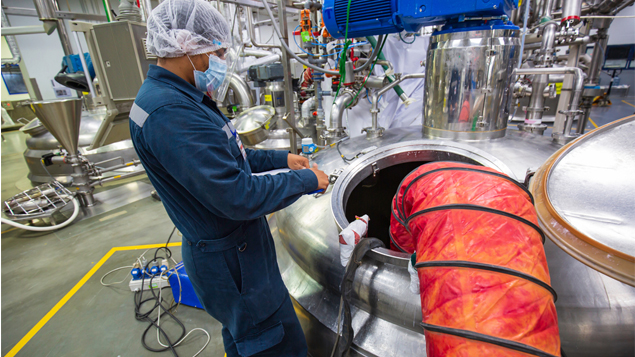[ad_1]

Shutterstock
Hundreds of thousands of manufacturing workers with health conditions that can be exacerbated by poor air quality are being exposed to potentially dangerous levels of airborne pollution, research has claimed.
Some 440,000 workers with health conditions are being failed by manufacturers, regulators and policy makers, who are inadequately addressing the issue of poor air quality in UK industrial workplaces, according to the environmental charity Global Action Plan and Zehnder Clean Air Solutions.
Current regulations allow levels of airborne hazards and pollution that are dangerous to manufacturing workers’ health, while enforcement of the standards is inadequate, the bodies say in their whitepaper ‘With Every Breath We Make: Ensuring Healthy Air for Manufacturing Workers’.
The whitepaper urges the government to lower the acceptable limits for air pollutants in manufacturing settings, echoing the call from the Institute of Occupational Medicine and Trades Union Congress that limits be changed to 1mg/m3 for respirable dust from the current 4mg/m3 COSHH trigger.
It says regulators must review exposure limits of all air pollutants in line with research which finds that airborne hazards can cause health conditions including heart attacks, cancer, diabetes, cognitive function and depression. They should also conduct long-term research programmes which combine air quality monitoring in manufacturing sites with tracking of workforce health.
The report cites research from Public Health England that suggests a one µg/m3 reduction in respirable dust (PM2.5) in England could prevent around 50,900 cases of coronary heart disease, 16,500 strokes, 9,300 cases of asthma and 4,200 lung cancers over an 18-year period.
Finally, manufacturers must review the business case for action on air pollution and adopt measures to eliminate airborne pollution, the whitepaper advises.
Chris Large, co-CEO at Global Action Plan, said: “Manufacturers are increasingly paying attention to employee wellbeing, especially as workplaces look to become Covid-secure, but the quality of the air and the working environment continues to be underplayed as a foundation of good employee wellbeing.
“Regulators must enforce lower limits to protect the hidden heroes who have continued to work throughout the pandemic, especially given ongoing research increasingly links poor air quality to the worsening of Covid-19 symptoms.”
Ben Simons, head of clean air west Europe, Zehnder Clean Air Solutions, said: “What this report highlights is both the serious health issues that need to be addressed to protect workers but also the opportunities that there are for businesses to take positive steps which in many cases will be more than paid back by increased efficiency.
“We also want to appeal to lawmakers to ensure that these long-term health effects are not ignored in the current health crisis and that we take the time now to set a course for UK manufacturing that supports its successes in the next decade and beyond.”
[ad_2]
Source link





